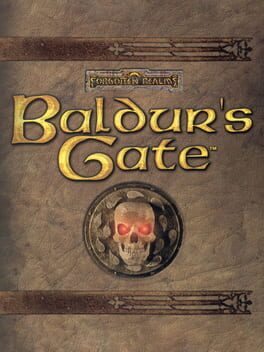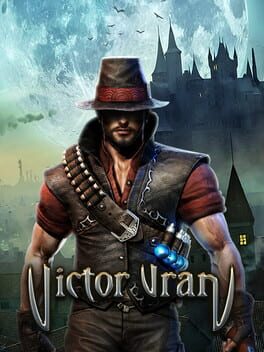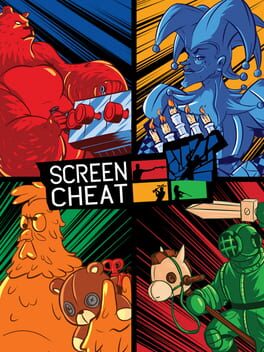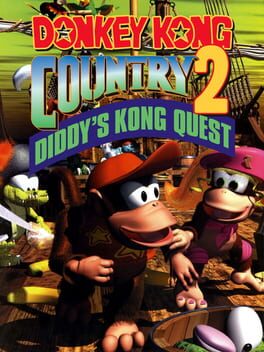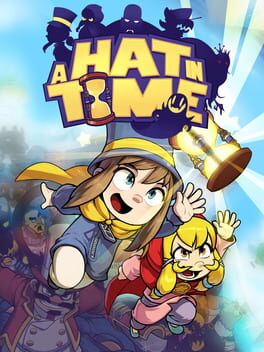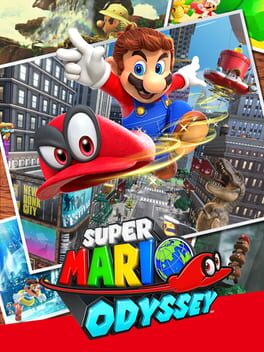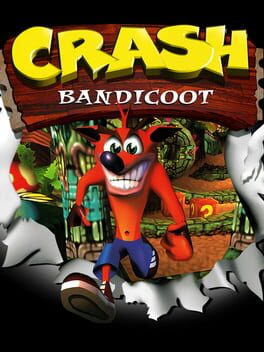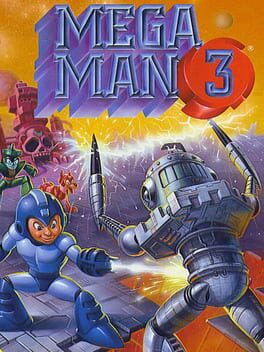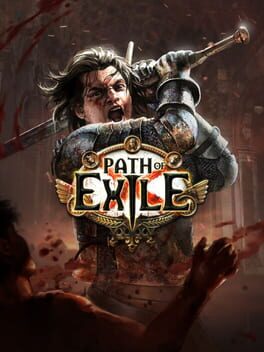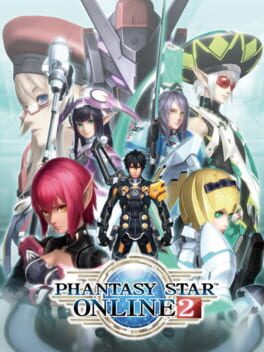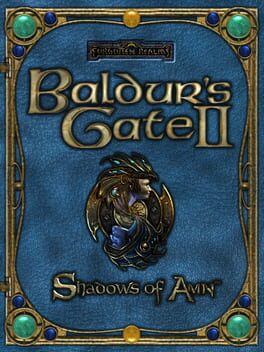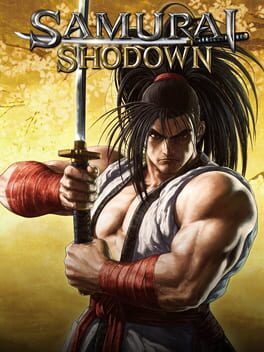synthezoid
1998
Yeah so when people say Baldur's Gate is an all-time great RPG that is still a benchmark for writing, atmosphere, memorable characters, and world design, they're actually talking about Baldur's Gate II. This one was a massive leap forward for RPGs, but it's so full of rough edges that the second game and later CRPGs successfully smoothed over that it hardly compares to them. It's also severely padded with repetitive encounters and uninteresting side quests--totally lacking in respect for your time.
What would become a defining element of Bioware's great games to come--the unforgettable companions and the choice-driven conversations the player can have with them--are barely here. Random party banter which lets you flesh out your relationship with them is practically nonexistent (interestingly, except for the new Enhanced Edition characters, which range from bland to neat), which makes the writing feel a bit sparse, especially when so many quests, despite the regular dialogue trees, ultimately devolve into killing a pack of enemies here or a horde of them there. It makes you wonder what your choices really added when it ended up in a similar combat scenario either way--and there are so many similar combat scenarios strewn a bit too liberally throughout the game. This becomes less of an issue in the dense, dialogue-rich city of Baldur's Gate, but it takes so long to get there that the wait doesn't feel justified. Meaningless fights pad too much of the open world and the dungeons, but experience points aren't meted out generously enough to make some of the tough required fights fair or fun if you rush past optional content.
The combat itself isn't a horrible system, but AD&D is simply too much of a slog at low levels--and this entire game is low level AD&D. While the real time with pause fights allow for a blend of strategy (when tougher fights demand planning, timing, and positioning) and speed (when the game throws wads of trash mobs at you to pad a forest or dungeon), it's ultimately one of the weakest parts. Again, it feels better in BG2 (or successors like Pillars of Eternity) simply because you're actually strong enough in that one to have some real power and flexibility, which is where RTWP combat feels the best. It's not horrible here, just a bit of a jumbled mess waiting for refinement. The pathing AI will have you and your companions enthusiastically running to their death, and the encounter design doesn't help to massage out the kinks in the combat. Enemies are frequently loaded with irritating powers like poison and petrification that will inevitably force reloads due to sheer bad luck, even if you bring antidotes or try to weave around them. Even Planescape: Torment, famous for having some of the weakest combat of the Infinity Engine games, was occasionally more fun precisely because it was rarely if ever that hard. Sure, it didn't demand any strategy, but at least you could click on some dudes or run away and it would be over shortly, and what little combat it demanded usually carried narrative weight or at least fit the tumultuous setting. Being tossed into unwinnable fights doesn't demand any strategy because "reload and come back later" or "turn on Story Mode difficulty for this fight" isn't strategy, it's something a Gamefaqs walkthrough tells you to do.
It's not an awful game, and there's a lot to love. It captures the feeling of wandering aimlessly around the Forgotten Realms at low level (complete with encountering Drizzt and Elminster in passing) where everything is dangerous fairly well, but that alone doesn't carry the game, and in fact starts to get tedious and frustrating well before you're done. Everything it does well is done better and sooner in Shadows of Amn. And some will tell you that it's necessary to enjoy its vastly superior cousin, but in my experience, that isn't the case, even if people who stuck with the first seem to have a stronger attachment to the returning characters. I shudder to think how many people in recent years have bought this game, tried it, and put it down when it got too boring, tough, or repetitive, then never tried the second game assuming it was more of the first.
What would become a defining element of Bioware's great games to come--the unforgettable companions and the choice-driven conversations the player can have with them--are barely here. Random party banter which lets you flesh out your relationship with them is practically nonexistent (interestingly, except for the new Enhanced Edition characters, which range from bland to neat), which makes the writing feel a bit sparse, especially when so many quests, despite the regular dialogue trees, ultimately devolve into killing a pack of enemies here or a horde of them there. It makes you wonder what your choices really added when it ended up in a similar combat scenario either way--and there are so many similar combat scenarios strewn a bit too liberally throughout the game. This becomes less of an issue in the dense, dialogue-rich city of Baldur's Gate, but it takes so long to get there that the wait doesn't feel justified. Meaningless fights pad too much of the open world and the dungeons, but experience points aren't meted out generously enough to make some of the tough required fights fair or fun if you rush past optional content.
The combat itself isn't a horrible system, but AD&D is simply too much of a slog at low levels--and this entire game is low level AD&D. While the real time with pause fights allow for a blend of strategy (when tougher fights demand planning, timing, and positioning) and speed (when the game throws wads of trash mobs at you to pad a forest or dungeon), it's ultimately one of the weakest parts. Again, it feels better in BG2 (or successors like Pillars of Eternity) simply because you're actually strong enough in that one to have some real power and flexibility, which is where RTWP combat feels the best. It's not horrible here, just a bit of a jumbled mess waiting for refinement. The pathing AI will have you and your companions enthusiastically running to their death, and the encounter design doesn't help to massage out the kinks in the combat. Enemies are frequently loaded with irritating powers like poison and petrification that will inevitably force reloads due to sheer bad luck, even if you bring antidotes or try to weave around them. Even Planescape: Torment, famous for having some of the weakest combat of the Infinity Engine games, was occasionally more fun precisely because it was rarely if ever that hard. Sure, it didn't demand any strategy, but at least you could click on some dudes or run away and it would be over shortly, and what little combat it demanded usually carried narrative weight or at least fit the tumultuous setting. Being tossed into unwinnable fights doesn't demand any strategy because "reload and come back later" or "turn on Story Mode difficulty for this fight" isn't strategy, it's something a Gamefaqs walkthrough tells you to do.
It's not an awful game, and there's a lot to love. It captures the feeling of wandering aimlessly around the Forgotten Realms at low level (complete with encountering Drizzt and Elminster in passing) where everything is dangerous fairly well, but that alone doesn't carry the game, and in fact starts to get tedious and frustrating well before you're done. Everything it does well is done better and sooner in Shadows of Amn. And some will tell you that it's necessary to enjoy its vastly superior cousin, but in my experience, that isn't the case, even if people who stuck with the first seem to have a stronger attachment to the returning characters. I shudder to think how many people in recent years have bought this game, tried it, and put it down when it got too boring, tough, or repetitive, then never tried the second game assuming it was more of the first.
2015
This is a game concept I'd been looking for for a while: a Diablo-style ARPG with a bigger emphasis on the action portion. I love the deep character building and variety of gameplay styles of Diablo, Path of Exile, Grim Dawn, and so on, but sometimes, some of those games devolve into idle button clicking to grind and farm higher. A more tactical take on the genre would be a breath of fresh air. And so this game is.
It introduces dodge rolling (don't say Dark Souls!) like in Dark Souls, (fuck!) a new WASD and controller-friendly control scheme (Diablo-style click-to-walk is also an option, but this game is frankly not built for that), and even a jump button. Also like Dark Souls (sorry) your abilities and playstyle are determined more by your weapon than your class. The result is a game that asks more of your attention and dexterity, but unfortunately, it dials back the other parts that make the best ARPGs just that.
Remember how I said weapons dictate your playstyle more than class? This is the result of the classes being pretty simple in effect and not too engaging. There aren't a whole lot of stats to tinker with on level up, and most of the "building" comes in a set of cards you can pick for your character that provide passive stat boosts alongside the affixes on your gear. Yes, this puts more Action in Action RPG, but it severely cuts down on the RPG side. That's not to say that there aren't plenty of possible ways to play, but unless the game introduces serious complexity that I haven't yet discovered down the road, it simply doesn't have the depth to compare to most of its competitors in that regard. While streamlining can be nice sometimes, it feels like there's very little class or character fantasy to latch onto and say "this is MY character, and they reflect how I want to play the game." The result is that the customization which does exist in this game does very little to capture the imagination and encourage creative new ways of playing.
The weapon you wield mostly decides what attacks you'll have access to, not you, the player. There are no multifaceted skill trees like Diablo 2 or skill astral cartographies like Path of Exile. Just you, a weapon, and a few other details you can tinker with. There are just few enough points of customization that it almost felt arbitrary what I picked since the odds of them actually coming together to make a build that was meaningfully better were so slim. Maybe in the endgame this becomes relevant, but if any ARPG should have exciting leveling, it's this one, since it promises more engagement no matter what your build is. The problem is that you're not promised anything particularly exciting for hitting the next level.
Luckily, the core gameplay loop is pretty fun.
The action combat works, though it will depend heavily on how you click with your weapon of choice. (I really expected rapiers to be fun, but honestly, they feel slow and clunky compared to the big AOE of a shotgun, chunky swings of a scythe, or chain lightning madness of a lightning gun.) It isn't the most exciting action gameplay, but it works well enough to be engaging for a bit, if not exactly addicting. The enemies have a solid variety, and unlike certain games in the genre, have a variety of abilities, behaviors, and playstyles that are worth considering while you play. It's not a game about simply one-shotting or getting one-shot. Still, it isn't quite as satisfying at its core as the addition of first-person shooting to the loot-grinding ARPG formula in something like Borderlands, and it lacks the joyful simplicity of clicking on dudes in Diablo, but it really is a good time in moderation. Having both a jump and a roll does feel redundant, however, and with the isometric view, jumping is a bit awkward and has a habit of getting snagged on the level.
Another strong point of Diablo (and some other great ARPGs) has always been its compelling lore and powerful atmosphere. This game's story is largely a matter of generic cliche, though if you're not annoyed by the narrator, you might find the tone to your liking. It's pretty enough to look at. It's neither as colorful as Torchlight nor as dark as Diablo, but it occupies a comfortable space in between. The lead is also voiced by Geralt of Rivia, which is a fun touch, but unfortunately he doesn't have all that much personality. It's pleasant, but it won't keep you in the world unless the gameplay hooks you.
These are all fairly early impressions, but after a few hours, I think I'll only come back to this game when I'm in the mood. I might beat it eventually. I probably won't replay it or proceed very far into whatever endgame content it has. But at its core, it is a good game. I do wish more developers would try to find ways of adding tactics and engagement to this genre, but this one feels like an incomplete first stab at that. The first hour or so was exciting, honestly, but after that, I realized how little I was looking forward to progressing, since it seemed like there wasn't much new to see. Still, I've enjoyed it so far and might come back to it and find I was missing out on what makes it great.
If you're turned off by ARPGs that feel like brainless farming, or if you love the genre but want to see it taken in a different direction, try this, but maybe get it on sale. It's not the future of ARPGs, but hopefully it's a slight premonition.
Then again, if I want a dead simple ARPG with rolling, maybe I'll just play Minecraft Dungeons.
It introduces dodge rolling (don't say Dark Souls!) like in Dark Souls, (fuck!) a new WASD and controller-friendly control scheme (Diablo-style click-to-walk is also an option, but this game is frankly not built for that), and even a jump button. Also like Dark Souls (sorry) your abilities and playstyle are determined more by your weapon than your class. The result is a game that asks more of your attention and dexterity, but unfortunately, it dials back the other parts that make the best ARPGs just that.
Remember how I said weapons dictate your playstyle more than class? This is the result of the classes being pretty simple in effect and not too engaging. There aren't a whole lot of stats to tinker with on level up, and most of the "building" comes in a set of cards you can pick for your character that provide passive stat boosts alongside the affixes on your gear. Yes, this puts more Action in Action RPG, but it severely cuts down on the RPG side. That's not to say that there aren't plenty of possible ways to play, but unless the game introduces serious complexity that I haven't yet discovered down the road, it simply doesn't have the depth to compare to most of its competitors in that regard. While streamlining can be nice sometimes, it feels like there's very little class or character fantasy to latch onto and say "this is MY character, and they reflect how I want to play the game." The result is that the customization which does exist in this game does very little to capture the imagination and encourage creative new ways of playing.
The weapon you wield mostly decides what attacks you'll have access to, not you, the player. There are no multifaceted skill trees like Diablo 2 or skill astral cartographies like Path of Exile. Just you, a weapon, and a few other details you can tinker with. There are just few enough points of customization that it almost felt arbitrary what I picked since the odds of them actually coming together to make a build that was meaningfully better were so slim. Maybe in the endgame this becomes relevant, but if any ARPG should have exciting leveling, it's this one, since it promises more engagement no matter what your build is. The problem is that you're not promised anything particularly exciting for hitting the next level.
Luckily, the core gameplay loop is pretty fun.
The action combat works, though it will depend heavily on how you click with your weapon of choice. (I really expected rapiers to be fun, but honestly, they feel slow and clunky compared to the big AOE of a shotgun, chunky swings of a scythe, or chain lightning madness of a lightning gun.) It isn't the most exciting action gameplay, but it works well enough to be engaging for a bit, if not exactly addicting. The enemies have a solid variety, and unlike certain games in the genre, have a variety of abilities, behaviors, and playstyles that are worth considering while you play. It's not a game about simply one-shotting or getting one-shot. Still, it isn't quite as satisfying at its core as the addition of first-person shooting to the loot-grinding ARPG formula in something like Borderlands, and it lacks the joyful simplicity of clicking on dudes in Diablo, but it really is a good time in moderation. Having both a jump and a roll does feel redundant, however, and with the isometric view, jumping is a bit awkward and has a habit of getting snagged on the level.
Another strong point of Diablo (and some other great ARPGs) has always been its compelling lore and powerful atmosphere. This game's story is largely a matter of generic cliche, though if you're not annoyed by the narrator, you might find the tone to your liking. It's pretty enough to look at. It's neither as colorful as Torchlight nor as dark as Diablo, but it occupies a comfortable space in between. The lead is also voiced by Geralt of Rivia, which is a fun touch, but unfortunately he doesn't have all that much personality. It's pleasant, but it won't keep you in the world unless the gameplay hooks you.
These are all fairly early impressions, but after a few hours, I think I'll only come back to this game when I'm in the mood. I might beat it eventually. I probably won't replay it or proceed very far into whatever endgame content it has. But at its core, it is a good game. I do wish more developers would try to find ways of adding tactics and engagement to this genre, but this one feels like an incomplete first stab at that. The first hour or so was exciting, honestly, but after that, I realized how little I was looking forward to progressing, since it seemed like there wasn't much new to see. Still, I've enjoyed it so far and might come back to it and find I was missing out on what makes it great.
If you're turned off by ARPGs that feel like brainless farming, or if you love the genre but want to see it taken in a different direction, try this, but maybe get it on sale. It's not the future of ARPGs, but hopefully it's a slight premonition.
Then again, if I want a dead simple ARPG with rolling, maybe I'll just play Minecraft Dungeons.
2014
All time great level design (except for moments like Gusty Glade's baffling required leap of faith or that part in Castle Crush with the FOUR hedgehogs, which I didn't know at the time you could roll into--they're literally covered in spikes!--yes, I'm still mad), all time garbage lives system. Maybe I'm not great at the game (I'm not), but consider that some of my favorite levels were still some of the most challenging ones; they just happened to also give you access to a save point before playing them, which made the challenge exciting rather than exhausting. Replaying a level you've already thoroughly mastered just to get to the one you haven't is rarely, if ever, fun. Unless you're willing to compromise the developer's "intended experience" by using save states if you're playing on a modern platform (which you should, seriously), this severely bogs down what should be some of the most thrilling and engaging parts of the game. I appreciate a good challenge, but the tedious save system in conjunction with levels which demand either trial-and-error repetition or more precision than this game's sometimes-sketchy hitboxes and tight camera allow make it a more tiring, frustrating experience than its streamlined predecessor.
Still, most of the early worlds, before the stingy save system gets so brutal as to be frustrating, and the last few levels, where you rarely need to play many in a row without saving, are truly intense and massively rewarding in a way that few platformers ever accomplish. Rare was even kind enough to include the surprisingly easy Toxic Tower right near the end as a token of gratitude for making it that far. When it's at its best, Diddy's Kong Quest promises to be an even better game than DKC1. It doesn't quite see that through, but I appreciate it all the more for trying.
Still, most of the early worlds, before the stingy save system gets so brutal as to be frustrating, and the last few levels, where you rarely need to play many in a row without saving, are truly intense and massively rewarding in a way that few platformers ever accomplish. Rare was even kind enough to include the surprisingly easy Toxic Tower right near the end as a token of gratitude for making it that far. When it's at its best, Diddy's Kong Quest promises to be an even better game than DKC1. It doesn't quite see that through, but I appreciate it all the more for trying.
2017
1996
It's like 75% of the way to being as good as I wish it was, but a few concerns hold it back.
The controls, while incredibly refined for a first effort, still have their quirks compared to later games. For example: why does Mario sometimes walk in an arc instead of turning around in place? When the controls work as intended, it feels amazing to long jump around 64's levels, but if you've experienced the immaculate game feel of Sunshine or Odyssey, this game can occasionally feel like a step back, even if only a small one.
While it has a greater level of completeness and polish to its mission design than Sunshine, I still feel like a few too many stars are janky or less interesting, particularly cannon stars, the wing cap, and anything to do with swimming.
Its structure that lets you grab almost any star on a particular level is nice and does a better job of encouraging exploration than the more restrictive shines in Sunshine, but the way it kicks you out after grabbing just one still discourages you from actually exploring beyond a single path each time you enter. Not to mention that starting from the same position every time only serves to accentuate how samey some stars feel. (Thank god for Odyssey's moon madness--that game's structure feels like an antidote to all the ills of past collectathons.)
Lastly, the music, while largely unforgettable, is unfortunately limited by the N64's storage space to be repeated across numerous stages. In my dreams, I see a Spyro Reignited-style remaster of SM64 that offers alternate orchestrations of the same song for each level, or something like that, but alas.
In spite of these gripes, it's still a benchmark 3D platformer and a blast to jump, kick, and dive around in--arguably more so than some of the series' later entries. (If you're able to Completely Legally back up your own ROM of this game, try the decompilation team's PC port which offers slightly improved camera control, can upscale to any resolution, and runs at 60fps. Why couldn't Nintendo get this game running at 60fps when they re-released it almost 25 years later?)
Best world: Rainbow Ride
The controls, while incredibly refined for a first effort, still have their quirks compared to later games. For example: why does Mario sometimes walk in an arc instead of turning around in place? When the controls work as intended, it feels amazing to long jump around 64's levels, but if you've experienced the immaculate game feel of Sunshine or Odyssey, this game can occasionally feel like a step back, even if only a small one.
While it has a greater level of completeness and polish to its mission design than Sunshine, I still feel like a few too many stars are janky or less interesting, particularly cannon stars, the wing cap, and anything to do with swimming.
Its structure that lets you grab almost any star on a particular level is nice and does a better job of encouraging exploration than the more restrictive shines in Sunshine, but the way it kicks you out after grabbing just one still discourages you from actually exploring beyond a single path each time you enter. Not to mention that starting from the same position every time only serves to accentuate how samey some stars feel. (Thank god for Odyssey's moon madness--that game's structure feels like an antidote to all the ills of past collectathons.)
Lastly, the music, while largely unforgettable, is unfortunately limited by the N64's storage space to be repeated across numerous stages. In my dreams, I see a Spyro Reignited-style remaster of SM64 that offers alternate orchestrations of the same song for each level, or something like that, but alas.
In spite of these gripes, it's still a benchmark 3D platformer and a blast to jump, kick, and dive around in--arguably more so than some of the series' later entries. (If you're able to Completely Legally back up your own ROM of this game, try the decompilation team's PC port which offers slightly improved camera control, can upscale to any resolution, and runs at 60fps. Why couldn't Nintendo get this game running at 60fps when they re-released it almost 25 years later?)
Best world: Rainbow Ride
2017
Super Mario Odyssey marries the rich movement and sandbox levels of 64 and Sunshine with the breathtaking setpieces and epic scale of Galaxy to create the definitive 3D platformer, a benchmark by which every other game like it must be judged. Odyssey is not just a great game, but a profoud expression of the simple joy of play and a shining example of how to look back while moving forward. Odyssey's greatest trick is making another take on a decades-old formula feel not just novel, but essential.
Mario is a name that has, over the years, become synonymous with refinement, iteration, and safe, polished design. Odyssey contrasts this with enough inventiveness, scale, and love to make a tired old plumber feel electrifying again. Mario has always been liquid fun, but Odyssey sees fit to crystallize that fun and carve it into a magnificent ice sculpture. Long live the king.
Best world: ??? who knows, they all rock
Mario is a name that has, over the years, become synonymous with refinement, iteration, and safe, polished design. Odyssey contrasts this with enough inventiveness, scale, and love to make a tired old plumber feel electrifying again. Mario has always been liquid fun, but Odyssey sees fit to crystallize that fun and carve it into a magnificent ice sculpture. Long live the king.
Best world: ??? who knows, they all rock
The best Zelda game since A Link Between Worlds 4 years earlier, which doesn't sound like high praise until you remember A Link Between Worlds was the best Zelda game ever, prior to 2017.
Gripping and engrossing from beginning to end, the game is sheer fun. Gone are the clunk and rigidity of some of the series' past outings. with so much freedom and expressiveness as to obsolete all your proconceived notions of what makes a great action-adventure game. Oh, sorry, I was still talking about A Link Between Worlds. Breath of the Wild is even better than that.
Breath's big leap forward for the franchise isn't just being open world--you could argue the very first Zelda game already did that, and countless AAA schlockfests have already wrung the open world craze dry. Nonlinearity was explored handily in ALBW, too. No, what really sets BotW apart is its systems-driven approach. Going wherever you want is nice, but even more exciting is getting there however you want, then doing whatever you want once you get there.
It's this systems-driven approach to gameplay that gives BotW the richest combat system, stealth system, physics, enemy design, puzzles, and the most universally useful toolset of any Zelda game yet. Creativity is king in BOTW. It's eager to reward you for your cleverness and your willingness to exploit your abilities to their fullest extent. It's liable to remind you of Deus Ex or other immersive sims in its no-holds-barred approach to player freedom. Solving the puzzle is no longer the point. The point is that you chose how to solve it. The point is that Breath of the Wild is the one Zelda experience that is entirely, unreservedly yours.
Gripping and engrossing from beginning to end, the game is sheer fun. Gone are the clunk and rigidity of some of the series' past outings. with so much freedom and expressiveness as to obsolete all your proconceived notions of what makes a great action-adventure game. Oh, sorry, I was still talking about A Link Between Worlds. Breath of the Wild is even better than that.
Breath's big leap forward for the franchise isn't just being open world--you could argue the very first Zelda game already did that, and countless AAA schlockfests have already wrung the open world craze dry. Nonlinearity was explored handily in ALBW, too. No, what really sets BotW apart is its systems-driven approach. Going wherever you want is nice, but even more exciting is getting there however you want, then doing whatever you want once you get there.
It's this systems-driven approach to gameplay that gives BotW the richest combat system, stealth system, physics, enemy design, puzzles, and the most universally useful toolset of any Zelda game yet. Creativity is king in BOTW. It's eager to reward you for your cleverness and your willingness to exploit your abilities to their fullest extent. It's liable to remind you of Deus Ex or other immersive sims in its no-holds-barred approach to player freedom. Solving the puzzle is no longer the point. The point is that you chose how to solve it. The point is that Breath of the Wild is the one Zelda experience that is entirely, unreservedly yours.
1996
2018
1990
2013
Path of Exile, though it may appear to be another take on the Diablo 2 formula, actually comes across as the inverse of that game's experience. It offers a robust and highly replayable endgame blocked off by a supremely repetitive casual play experience, devoid of most of that game's atmosphere, presentation, or narrative power. It offers depth and character building possibility (mechanical, not the role-playing kind) cranked up to 11 but is let down by combat that ultimately encourages mindless clearing of indistinguishable hordes of enemies over tactical, positional play thanks to a one-shot-or-be-one-shot meta.
Disappointing, too, is the way the MMO elements like a trading economy dictate how the itemization is balanced, creating an environment that is highly unforgiving to players who want to forge their own path without guides or community involvement. Those players who can get on board with its idiosyncracies and its rapid clip may find themselves happy to grind their way to the top of the ladder with a new character every season, but players who want to grow in power at their own pace while exploring a compelling world would be better served by some of the genre's other titans, like Diablo 2 or Grim Dawn.
Disappointing, too, is the way the MMO elements like a trading economy dictate how the itemization is balanced, creating an environment that is highly unforgiving to players who want to forge their own path without guides or community involvement. Those players who can get on board with its idiosyncracies and its rapid clip may find themselves happy to grind their way to the top of the ladder with a new character every season, but players who want to grow in power at their own pace while exploring a compelling world would be better served by some of the genre's other titans, like Diablo 2 or Grim Dawn.
A massive step up from its predecessor. The gameplay still suffers slightly at times due to AD&D jank, general complexity that doesn't translate well to a real time video game, and the growing pains of the very subgenre BG2 helped codify, but in spite of this, Baldur's Gate 2 is a masterpiece.
Its massively innovative in-depth companion dialogue still holds up to this day, even if the characters and their lines feel a bit tropey and straightforward nowadays. It also retains a certain sense of wonder and mystery, plus an absolutely stunning tone that the archaic mechanics and presentation only seem to help bring out, like reading historical literature from an ancient tome.
The combat grows into its shoes much more than the dragging, plodding Baldur's Gate 1. Here it frequently manages to be fun and satisfying, occasionally tense and exciting. However, there are still moments when the mobs it throws at you are more filler than killer. Sometimes, it even has the opposite problem, throwing you against tough enemies that are more easily defeated with the wand of Google and a quick load than the game's more satisfying conventional problem solving.
It doesn't help that there are what feels like several dozen different immunities enemies can have and just as many different ways of dispelling each one, with the game offering little in the way of warning or teaching beforehand. Trying to follow along in the combat log is an exercise in futility--the real-time combat means that, realistically, too much happens to sift through it and understand everything that's going on. The better encounters in this game will throw enemies at you that are threatening and meaningful, keeping you on your toes, but will show restraint when drawing from the well of non-interactive "gotcha" spells and abilities. Finding out that an enemy can only be effectively countered by reloading a save and preparing a new spell list isn't nearly as rewarding as it is time-consuming.
Still, some stinker encounters should be expected in a game full of so many setpieces--this game is a sprawling and gigantic crash course in Forgotten Realms lore and D&D traditions. Fans of the setting will find their jaws dropping at the love and care with which the world is presented, and those who don't especially care for this world might start to understand why some do.
The sheer engrossment I felt playing this game (even despite a year-long break I took from playing it midway through--I do that with most long games) is astonishing. It's one of the few RPGs of its size class that I didn't find myself eventually repulsed by long before the end. If you're not as patient as I occasionally was, turning the game down to easy (or even the easiest) mode when it gets frustrating is a totally acceptable way to keep yourself barrelling through the game's myriad adventures at a more reasonable pace.
Though the combat works, the characters, narrative, and exploration are the real selling points. Don't keep yourself from getting more of them because of any devotion to the game's mechanics. This game is the blueprint for memorable companions, intra-party dynamics, and iconic worlds that Bioware has spent the rest of their history looking to replicate.
However you might end up consuming it, if you're at all interested in the history of gaming, story-heavy RPGs, Dungeons & Dragons, or all-time gaming classics, Baldur's Gate II: Shadows of Amn is worth a try. If you find yourself hooked, as I did, it's worth seeing all the way through, warts and all. Somehow, it manages to be much greater than the sum of its parts.
Its massively innovative in-depth companion dialogue still holds up to this day, even if the characters and their lines feel a bit tropey and straightforward nowadays. It also retains a certain sense of wonder and mystery, plus an absolutely stunning tone that the archaic mechanics and presentation only seem to help bring out, like reading historical literature from an ancient tome.
The combat grows into its shoes much more than the dragging, plodding Baldur's Gate 1. Here it frequently manages to be fun and satisfying, occasionally tense and exciting. However, there are still moments when the mobs it throws at you are more filler than killer. Sometimes, it even has the opposite problem, throwing you against tough enemies that are more easily defeated with the wand of Google and a quick load than the game's more satisfying conventional problem solving.
It doesn't help that there are what feels like several dozen different immunities enemies can have and just as many different ways of dispelling each one, with the game offering little in the way of warning or teaching beforehand. Trying to follow along in the combat log is an exercise in futility--the real-time combat means that, realistically, too much happens to sift through it and understand everything that's going on. The better encounters in this game will throw enemies at you that are threatening and meaningful, keeping you on your toes, but will show restraint when drawing from the well of non-interactive "gotcha" spells and abilities. Finding out that an enemy can only be effectively countered by reloading a save and preparing a new spell list isn't nearly as rewarding as it is time-consuming.
Still, some stinker encounters should be expected in a game full of so many setpieces--this game is a sprawling and gigantic crash course in Forgotten Realms lore and D&D traditions. Fans of the setting will find their jaws dropping at the love and care with which the world is presented, and those who don't especially care for this world might start to understand why some do.
The sheer engrossment I felt playing this game (even despite a year-long break I took from playing it midway through--I do that with most long games) is astonishing. It's one of the few RPGs of its size class that I didn't find myself eventually repulsed by long before the end. If you're not as patient as I occasionally was, turning the game down to easy (or even the easiest) mode when it gets frustrating is a totally acceptable way to keep yourself barrelling through the game's myriad adventures at a more reasonable pace.
Though the combat works, the characters, narrative, and exploration are the real selling points. Don't keep yourself from getting more of them because of any devotion to the game's mechanics. This game is the blueprint for memorable companions, intra-party dynamics, and iconic worlds that Bioware has spent the rest of their history looking to replicate.
However you might end up consuming it, if you're at all interested in the history of gaming, story-heavy RPGs, Dungeons & Dragons, or all-time gaming classics, Baldur's Gate II: Shadows of Amn is worth a try. If you find yourself hooked, as I did, it's worth seeing all the way through, warts and all. Somehow, it manages to be much greater than the sum of its parts.
2019
